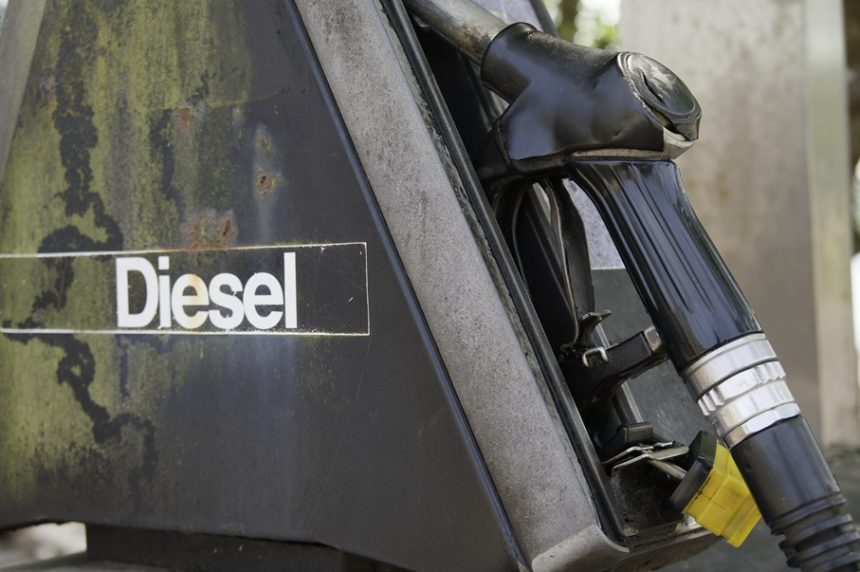After significant volatility during the previous month, wholesale UK diesel prices stabilised somewhat in July, increasing from 51ppl excluding duty to 53ppl. The underlying Brent crude benchmark rose at a similar pace due to geopolitical tensions and improving demand.
At the start of July, Iran suspended cooperation with United Nations nuclear watchdog the International Atomic Energy Agency, heightening the geopolitical risk premium. On 5 July, OPEC+ announced an output hike of 548,000 barrels per day (BPD) in August, above expectations of a 411,000 BPD increase.
Despite concerns of a global supply glut, the decision signalled market strength. Additionally, Saudi Arabia increased prices for its main crude grade to Asia, suggesting physical markets remain tight. Further geopolitical tensions saw Red Sea attacks by Yemen’s Houthi rebels targeting Liberian cargo ships, causing prices to rise.
Later in July, trade developments saw a United States-Japan tariff deal reached and a US-EU agreement to impose a 15% tariff rather than the earlier threat of 30%, alleviating concerns of a trade war.
President Trump originally pledged 100% tariffs on Russia if a peace deal with Ukraine was not achieved within 50 days, but that was later revised to a 10-day deadline. Meanwhile, the EU imposed new sanctions targeting Russia’s oil industry, adding pressure to the market.
Despite trading near its highest level since October 2021 at the beginning of July, largely due to the UK-US trade deal and a weaker US dollar, GBP depreciated from US$1.372 to US$1.323 as the UK economy remains fragile.
Although the US dollar reached its lowest level since February 2022, it stabilised after US unemployment figures fell to 4.1%. Additionally, UK GDP contracted for a second consecutive month in May, by 0.1%.
In response, Bank of England Governor Andrew Bailey reiterated a downward trajectory for interest rates. As a result, investors forecasted two additional rate cuts this year, causing GBP to fall to a twelve-week low of US$1.323.
However, UK inflation hit 3.6% in June, the highest since January 2024, causing uncertainty about the Bank’s next monetary policy decision. Towards month-end, weak retail sales exacerbated growth concerns, and investors predicted a 25-basis point cut in August. That was duly delivered on 6 August.
Meanwhile, President Trump confirmed he had no plans to fire Federal Reserve Chair Jerome Powell, and the central bank opted to maintain interest rates despite pressure from Trump. Based on current diesel prices, a circa five-cent fall in GBP/USD across the month equates to an increase of circa 1.6ppl in UK wholesale diesel.

Wholesale UK renewable diesel (HVO) prices rose steadily from 122ppl to 131ppl (excluding duty and renewable transport fuel certificate (RTFC) benefit) throughout July. After staying strong at the end of Q2 due to high expected demand from revised EU biofuels mandates, HVO continued to strengthen, supported by increased geopolitical tensions.
On the supply side, trade flows have been reshaped by EU anti-dumping duties on Chinese biodiesel and HVO earlier this year. For example, just 95,000 tonnes of HVO arrived at the Amsterdam-Rotterdam-Antwerp (ARA) hub in Q2, down from 155,000 tonnes a year earlier, tightening supply.
On the other hand, increased flows of used cooking oil (UCO) from China to the EU had been expected, due to changes to the central US renewable tax credit restricting eligibility of fuels produced using imported feedstocks.
Recent data revealed that Chinese UCO exports reached a seven-month high in June, supported by increased summer demand according to analysts.
Moreover, in latest biofuels news, from 8 July the UK Trade Remedies Authority requires all imported HVO biodiesel from the US to be registered as part of an ongoing investigation into US renewable diesel.
This follows the anti-dumping investigation into US renewable diesel in May, after a trade remedy complaint led by the UK Renewable Transport Fuel Association, Greenergy, Olleco, and Argent Energy. The investigation alleged that HVO had been imported into the UK at less than the normal value, therefore posing a threat to the domestic biodiesel industry.
Finally, the cost of blending biodiesel to the UK B7 specification declined from 7.5ppl to 7ppl, thus lowering the cost of the Renewable Transport Fuel Obligation (RTFO). Meanwhile, the price of RTFCs fell marginally from 25p per certificate (ppc) to around 24.5ppc, slightly reducing the benefit that HVO consumers received (assuming 100% of the RTFC benefit is passed on the end-user).


























